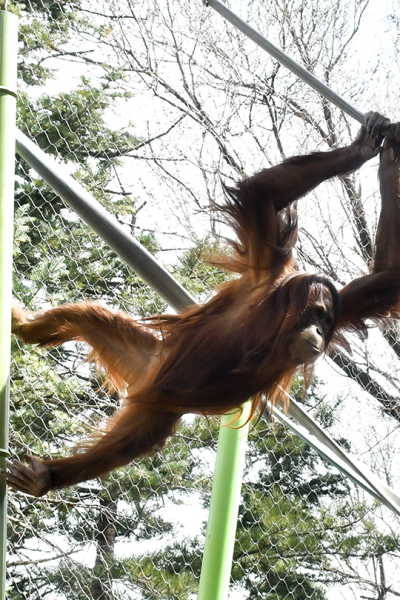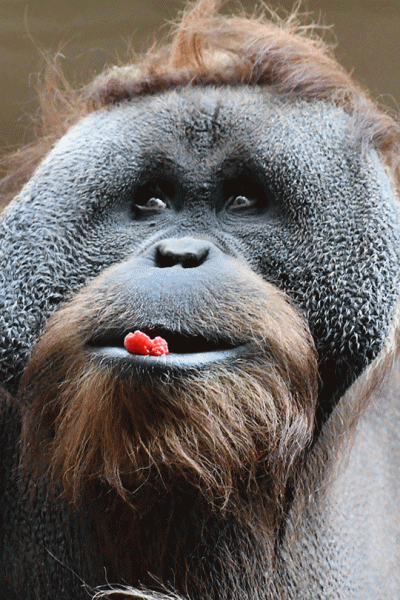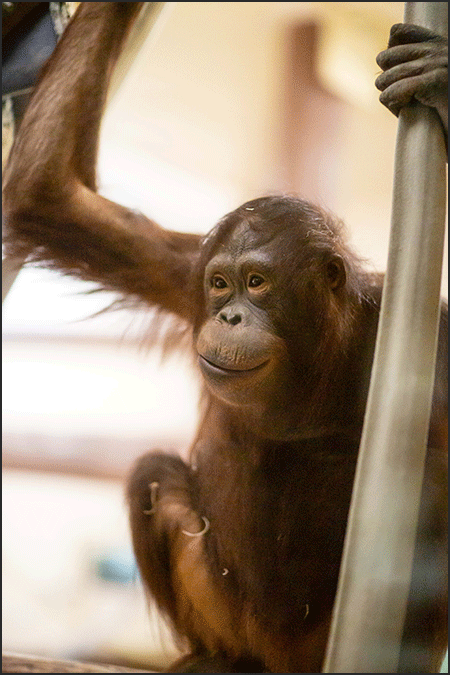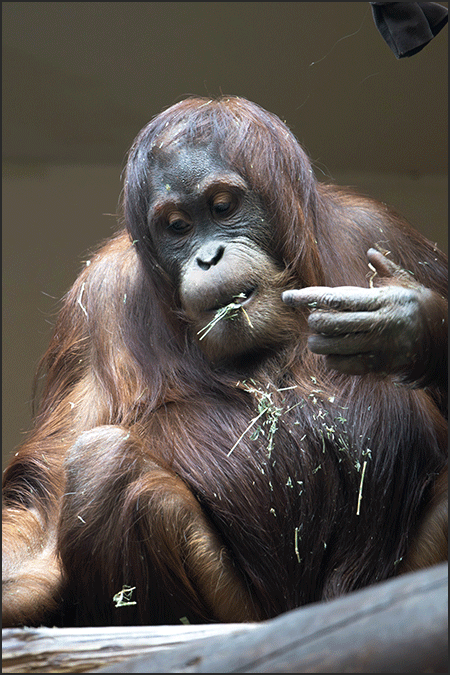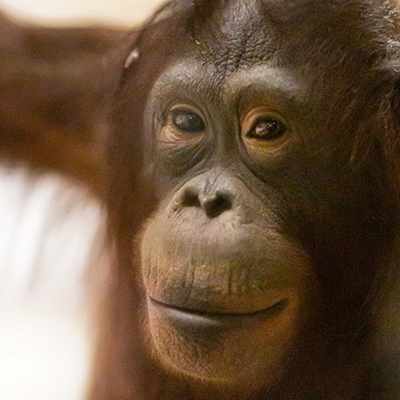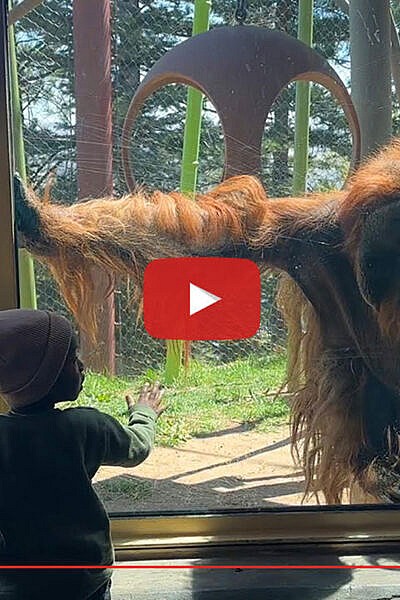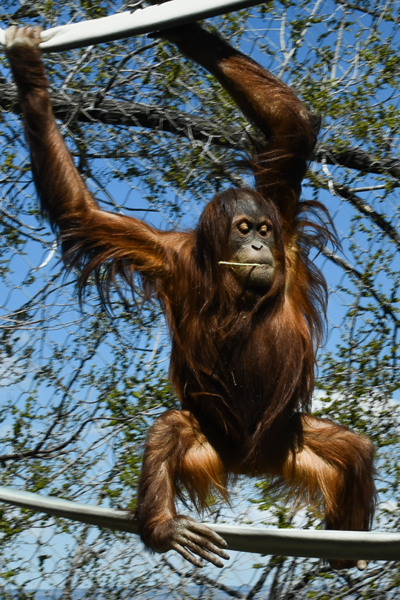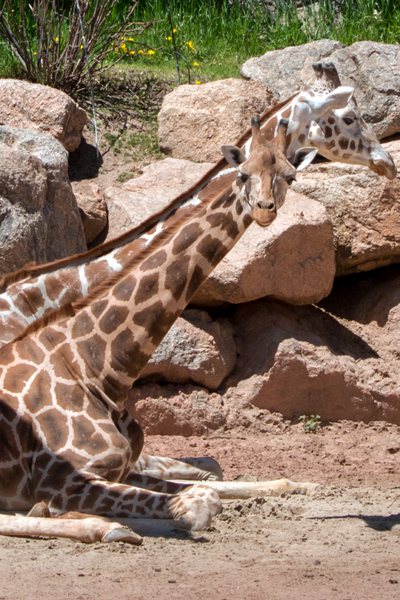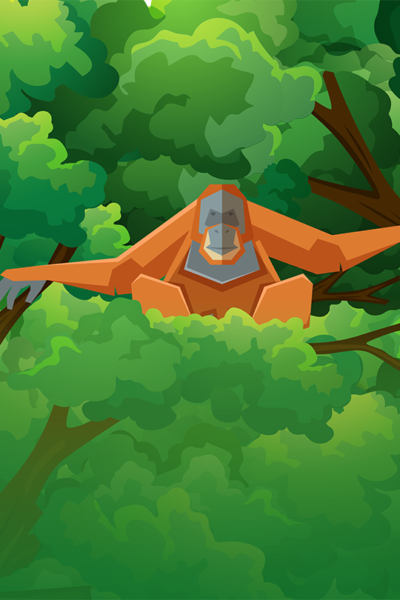Visitors to Primate World, at Cheyenne Mountain Zoo, may soon notice two crates in the orangutan yard. These crates are part of the Zoo’s careful preparations to help two iconic Sumatran orangutans, 6-year-old Kera and her mother, 37-year-old Sumagu, get ready for their next chapter.
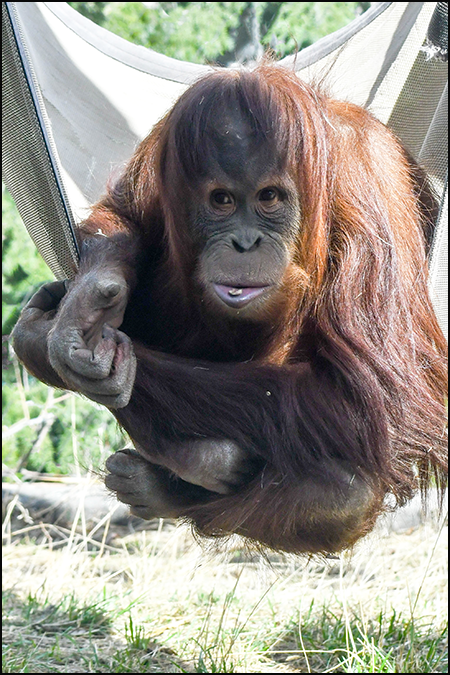
The mother-daughter duo is scheduled to move to another AZA-accredited zoo, likely later this summer, as part of a breeding recommendation through the Association of Zoos and Aquariums’ Species Survival Plan (SSP) for Sumatran orangutans.
Sumagu has a breeding recommendation with a male at another zoo, and keepers are working diligently to ensure the move is as smooth and low-stress as possible.
“Crate training is one of the more advanced behaviors we work on with our orangutans,” Ashton Asbury, Primate World animal keeper, says. “We’re teaching Kera and Sumagu to voluntarily enter the crates and to be comfortable spending time in them.”
Using positive reinforcement training, keepers are helping both orangutans associate the crates with rewards and calm experiences. In addition to watching for subtle behaviors, the team teaches the orangutans to signal when they’re ready to end a training session. This method allows Kera and Sumagu to feel empowered throughout the training process.
“Our goal is for them to enthusiastically enter the crates and allow the doors to close behind them,” Ashton says. “That way, when it’s time for the big move, it’s a familiar and positive experience.”
Thanks to this voluntary approach, neither orangutan will require sedation during their trip. Experienced animal transport professionals will make stops along the way to check on the great ape travelers, offering food and water, and making visual health checks. The teams also collaborate with AZA-accredited zoos along the way, in case the orangutans need care mid-trip.
Sumagu, who was born at CMZoo, will be stepping into a new world as she heads to her new home.
“We’re excited for Sumagu to have this new life experience,” Ashton says. “She’s such a wise and savvy orangutan. She’s very confident, and we’re encouraging her choice and control as she trains. She’s a great communicator. If she needs us to make adjustments, she’ll let us know.”
Sumagu’s daughter, Kera, is also preparing for this next stage in life. At her age, orangutans naturally begin to seek more independence, and Sumagu encourages that independence in Kera. To support this, Kera and Sumagu will travel in separate crates, and then settle into their new home together.
“It’s important for young female orangutans, like Kera, to observe their mothers raising another baby,” Ashton says. “She doesn’t have a breeding recommendation, but she could later. Young female great apes who get to be older siblings become more successful mothers later. Great apes’ offspring typically stay with their moms longer than any animal species, and learning how to be a mom from their own mom is the best-case scenario.”
Keepers at CMZoo will be working closely with the orangutans’ future animal care team, sharing training histories and behavioral nuances, which is essential for complex and intelligent animals like orangutans.
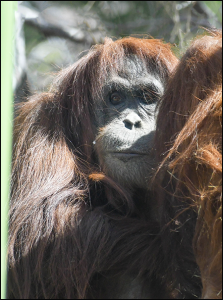
“Kera is such a fun kid,” Ashton says. “She’s serious about orangutan things, like nest-building, but she’s also super engaging and outgoing with people. We will definitely miss both of them, but we’re proud to support this breeding recommendation that supports the population in human care, and continues to inspire conservation for wild orangutans.”
Fans of Kera and Sumagu, and all orangutans, can save the rainforests from the comfort of their smartphones with a free global mobile app called PalmOil Scan, available for free on the App Store and Google Play. It is available in the United States, Canada, the United Kingdom, Australia and New Zealand, with further expansion planned in the future. Orangutan enthusiasts can learn more about palm oil, and download the free app before their next shopping trip, at cmzoo.org/palmoil.
Palm oil is an edible oil that can be found in about half of consumer products. Unsustainable palm oil production results in deforestation in Indonesia and Malaysia, the only places where critically endangered orangutans live in the wild. Although the majority of palm oil production is in Southeast Asia, it has also expanded to other tropical areas, which means more animal species could lose the habitats they need to survive.
When produced sustainably, palm oil is 4 to 10 times more productive than any other edible oil. Using PalmOil Scan, conscientious consumers can scan the barcodes on tens of thousands of products in the app’s extensive database (which is being updated and expanded continually) to see if they are produced by a company that has committed to sourcing sustainable palm oil.
“Orangutans are incredibly intelligent and complex animals,” Ashton says. “Our animal care team knows these great apes really well, and we’re planning for the best opportunities for all of the orangutans in our care as these changes take place.”
Primate World is currently home to six orangutans: three Sumatran orangutans, including Kera and Sumagu, and three Bornean orangutans. When Kera and Sumagu move, male Sumatran orangutan, Baka, will continue his current lifestyle, with access to interactions through a safety barrier with Ember and Hadiah, mom-and-daughter Bornean orangutans. Tujoh, a male Bornean orangutan, will continue to have the same access.
